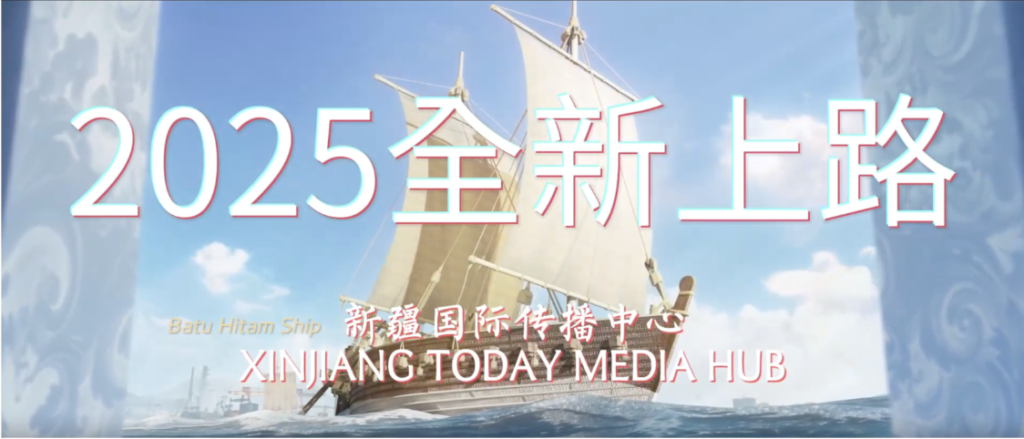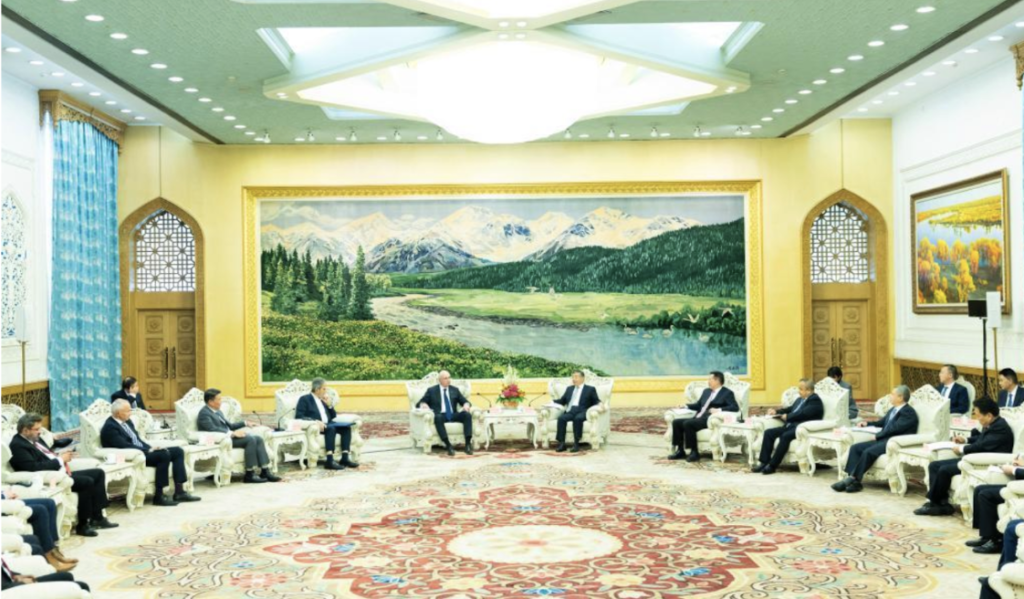
International Communication Centers, or ICCs, have been sprouting up across China at a blistering rate since 2018. Tasked with leveraging local expertise and fusing traditional and new media to amplify the Party’s external propaganda, their story is one we have been following closely for years. But one part of the PRC has remained a grey area on the map — the part of the country perhaps most in need of positive spin, the far-western Xinjiang region.
Then, in late December 2024, Xinjiang’s branch of the Cyberspace Administration of China (网信新疆) announced the launch of the Xinjiang International Communication Center (新疆国际传播中心), housed in its own purpose-built offices in regional capital Urumqi. The announcement called the center Xinjiang’s "principal window of external communication," promising it would “tell the story of Xinjiang in the New Era well in many forms and through many channels in international society." As with other ICCs, Xinjiang’s is hosted by a major local media center — in this case, Xinjiang Media Group (新疆报业传媒集团), a collection of newspapers, websites, and one online app helmed by the regional Party newspaper, Xinjiang Daily (新疆日报).
A New Propaganda Nexus
Xinjiang Daily credits the new ICC with helping it to build a “matrix of foreign propaganda products.” One of the products they list is a website called Tianshan Net (天山网), which features videos from the new ICC and publishes content in English, Kazakh, Russian, and Uyghur. As we have written about before, China now conceives of external propaganda as an all-of-society effort pulling in various government and Party institutions. ICCs are not just production centers but hubs that serve to weave these different threads together.
For a glimpse of what the ICC’s own in-house content may look like in the future, however, we can turn to some of the videos it released over 2023 in what appears to have been a test run. These feature the standard ICC fare of postcard scenery, exotic ethnic minorities, and bedazzled foreigners. “There’s nothing to be scared of,” Dr. Paul Anthony Courtney, the former mayor of a small desert city in California, says in one interview. “It’s like being at home but in a different world and in a different culture.”

Despite these efforts to reel in tourists with its “ethnic minorities” — majorities in much of the region — Xinjiang is best known internationally for subjecting its ethnically Turkic and predominantly Muslim population to what the UN calls crimes against humanity. More than anywhere else in the country, Xinjiang needs to refurbish its reputation. Yet while ICCs have spread throughout wealthier provinces to the east, Xinjiang has had most of its overseas propaganda created by outlets headquartered in Beijing like Xinhua and the People’s Daily.
Xinjiang’s ‘New Image’
Throughout 2024, Xinjiang’s government worked hard to cast off its poor reputation. In May, a special International Communication Research Center brought together members of the regional propaganda department to brainstorm new ways to “tell Xinjiang’s story well.” China’s annual World Media Summit also came to the regional capital, with executives from international news outlets like Reuters, AP, and CNN rubbing elbows with their counterparts at Xinhua, People’s Daily, and China Media Group.

In his opening speech for the summit, Xinjiang’s Party Secretary expressed hope that delegates would “adhere to journalistic ethics, objectively report and record Xinjiang, consciously resist false information, oppose rumors and prejudices, and tell the international community about the real Xinjiang.” A media industry magazine under Xinhua said that holding the marquee event in Urumqi was a product of Xi Jinping’s order in August 2023 to “showcase Xinjiang’s new image and atmosphere of openness and confidence.”
Xinjiang’s ICC, despite the long wait and the lofty expectations ascribed to it, is unlikely to give us any new, innovative content. But it’s merely one more weapon in what they have called “a smokeless war” for global public opinion — one the Chinese Party-state is determined to win.




















